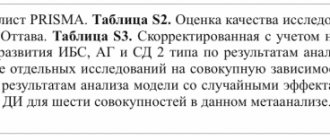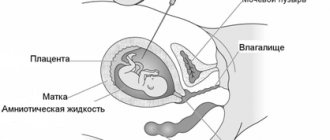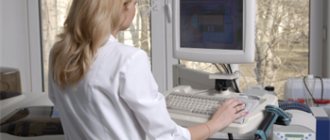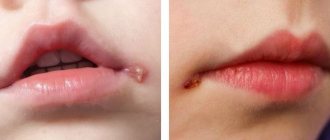Defects of the immune system can be suspected in the presence of repeated respiratory infections, in the presence of chronic inflammatory and autoimmune diseases, fungal and parasitic infections. Immunity examinations are also carried out to help with allergic diseases, severe common diseases requiring emergency care, in monitoring immunomodulatory therapy, to identify primary or secondary immunodeficiency, before and after organ transplantation, and in cancer. In addition to damage by the human immunodeficiency virus, secondary immunodeficiency develops after major surgical interventions, extensive, severe infections, and during therapy with immunosuppressive or strong anti-inflammatory drugs.
Immunity studies help in assessing the activity and stage of inflammatory, infectious and allergic immune responses, and the effectiveness of therapy. For this purpose, they are carried out repeatedly.
What are antibodies
Antibodies (or immunoglobulins) are proteins that help the body fight bacteria, fungi and viruses.
There are antibodies for almost every pathogen that the body has encountered. Immunoglobulins recognize surface proteins of the microbe and bind to it. Next, the antibodies either neutralize the “stranger” or attract other elements of the immune system to it. For example, the complement system (a complex of proteins that protects against foreign agents) or phagocytes - immune cells that devour microbes. As a rule, antibodies are formed already in the first week of coronavirus infection. When the virus enters the blood again, they immediately notice it and neutralize it. But antibodies are not the only and not the main component of antiviral protection.
Humoral and cellular immunity
There are two types of immunity – humoral and cellular. Humoral immunity is represented by antibodies and the complement system (a complex of proteins that destroy pathogens), which are found in the blood plasma.
Cellular immunity is represented by T lymphocytes, natural killer cells and macrophages¹. These are immune system cells that recognize and destroy infected human cells.
Antibodies are produced by B lymphocytes after activation by T helper cells. That is, in order to produce enough antibodies, both B cells and T cells must work. T-helpers activate not only B-lymphocytes to produce antibodies, but also T-killers - cells of a specific cytotoxic level. They, like T-helpers, recognize cells infected with this particular virus and kill them. Thus, the humoral and cellular parts of immunity are closely related. Without helpers there will be neither antibodies nor a specific cellular cytotoxic response.
Humoral immunity (particularly antibodies) works more against extracellular pathogens (eg, bacteria, fungi). In relation to a viral infection, cellular immunity is much more important, since the virus is an intracellular parasite. Here it is important to destroy infected cells (for example, cells of the mucous membranes of the respiratory tract, where the virus penetrates). Due to their large size, antibodies circulating in the blood are physically unable to penetrate the mucous membranes (except for immunoglobulin A). Therefore, neutralization of the virus at this stage is the prerogative of cellular immunity.
As a rule, cellular immunity mechanisms work much longer than humoral ones. For the new coronavirus, we may be talking about years or even decades (no data on this yet). The antibodies themselves may disappear after a few months, but memory cells will remain, both T-lymphocytes and B-lymphocytes, which, when confronted with the virus, will provide both a humoral and cellular response.
Why are antibodies determined?
It is important to know how to interpret the results of an antibody test for the new coronavirus so that they are informative for you.
The presence of certain antibodies indicates that you have been vaccinated or have been exposed to the virus (recently or several months ago), and it does not matter whether you were ill or it was an asymptomatic carriage, which is difficult to confirm otherwise. One of the reasons why antibodies are determined is the cheapness and availability of the method. Antibodies, like a light bulb on a refrigerator, show whether the mechanism is working, whether the immune system has been activated. The division of humoral and cellular immunity is quite arbitrary, because these two links are connected. Testing for cellular immunity is an expensive procedure that is not widely available, and the presence of antibodies indicates that a cellular response is most likely present. But in their absence, the positivity of cellular immunity is questionable.
Figure 1. Herd immunity. Image: Photo: NIAID/Flickr
In what cases is a blood test for immunity necessary?
Adults and children are recommended to take an immunity test if:
- frequent ARVI and other viral infections
- stubborn thrush
- pustular rashes
- allergic diseases
- autoimmune pathologies
- recurrent herpes
- chronic sinusitis and bronchitis.
This type of immune testing will help determine whether the above conditions are caused by a weakened immune system, and will also make it possible to take the necessary treatment and preventive measures in a timely manner.
What does the analysis consist of?
Immunity testing is required for people with suspected abnormalities in the immune system. This procedure is a study of several components of immunity:
- humoral
- cellular
- nonspecific.
The doctor independently decides what immunity tests need to be done, taking into account the complexity of the situation, medical history and the results of studies already conducted.
How are antibodies formed?
The formation of antibodies is the coordinated work of several types of cells of the immune system. Once a pathogen (antigen) enters the body, it is absorbed by macrophages. The latter process the antigen into a form that becomes visible to T lymphocytes (this is how the antigen becomes immunogenic). The antigen then breaks away from the T lymphocyte along with its receptor and reattaches to the macrophage. At this stage, B lymphocytes are activated, which under such circumstances turn into plasma cells that produce antibodies.
Already in the first week of coronavirus disease, class M immunoglobulins (IgM) are formed. This is the first line of antibody defense. The purpose of these immunoglobulins is to bind and neutralize as many viral particles as possible. However, hastily made antibodies are not highly specific to viral antigens. Therefore, IgM does not always accurately find and bind the desired antigen.
After 3-4 weeks, IgM disappears and is replaced by immunoglobulin G (IgG). This is a more advanced weapon against the pathogen. For coronavirus infection, it has been shown that IgM can persist for up to 3 months. Perhaps this indicates that the virus remains in the body for a relatively long time.
During the acute period of infection, immunoglobulin A (IgA) is also produced. These antibodies specialize in protecting the mucous membranes, the entry point of the virus.
How long do antibodies last?
This is one of the most discussed issues since the start of the pandemic.
In the first months, there was evidence that immunity after illness lasts only 2-3 months, after which you can get sick again. But this information was quickly denied. Cases of re-infection are extremely rare. Both cellular and humoral immunity are triggered here. As for the “survivability” of immunoglobulins G, the data are contradictory and apparently individual; they persist from 3-4 to 9 months after an illness or vaccination. This is evidenced by the latest research published in Nature Communications⁴.
Types of antibodies
Since the onset of the COVID-19 pandemic, many have heard about immunoglobulins G (IgG) and M (IgM), but there are other types of antibodies. There are 5 types of immunoglobulins:
- IgM - are formed in the first days after infection. These are acute phase antibodies². They are weaker than immunoglobulins G and break down more quickly. The presence of IgM indicates a recent illness.
- IgG are part of the secondary immune response. These are antibodies that are produced after infection. They are needed in case the microbe suddenly appears again.
- IgA is the main class of antibodies in mucous tissues. This is one of the elements of local immunity - protective reactions on the mucous membranes of the nasal cavity, mouth and throat (if we are talking about respiratory pathogens such as SARS-CoV-2)³.
- IgE is responsible for protecting the body from parasites. They are also involved in allergic reactions.
- IgD is the least studied class of immunoglobulins. It has been established that IgD is a membrane receptor. It is possible that these antibodies bind to certain blood proteins, causing an autoimmune disease to develop.
Figure 2. Simplified diagram of the immune response.
Image: website of the Club of Russian-speaking Scientists of the State of Massachusetts Today, enzyme-linked immunosorbent assays or immunochromatographic assays (ELISA and ICA) are most often used to determine antibodies against the new coronavirus.
The ELISA method is considered more accurate, since it is not only a qualitative, but also a quantitative analysis (shows the amount of antibodies per unit volume of blood). To do this, a person needs to donate blood at a medical facility or diagnostic laboratory.
ICA testing is an analysis using test strips. It shows only the presence or absence of immunoglobulins M and G.
The requirements for blood sampling for the ELISA and ICA methods are standard (as for other blood tests):
- It is advisable to donate blood on an empty stomach;
- before the analysis it is not recommended to drink coffee, juices, tea and alcohol;
- It is also advisable to exclude water an hour before the analysis;
- Smokers are not recommended to smoke, at least 1-2 hours before testing.
Why get vaccinated if you have antibodies?
Yasny Ilya Evgenievich, Ph.D., head of scientific examination of the pharmaceutical investment fund "Inbio Ventures":
“Antibodies are a simple attempt to answer a very complex question: Will your immune system protect you from getting infected again? Antibodies correlate with this, but are far from 100%. According to international recommendations, and this is the WHO, agencies of different countries - the USA, Great Britain, the European Union - antibodies are not a reason not to get vaccinated. There are cases where people got sick with high antibodies and even ended up in the hospital, but they are quite rare, and at the same time, there was a tendency for reinfection to be more likely with a low titer of antibodies after the first illness. Cases of recurrent disease will certainly increase. Because the virus evolves, more and more new variants appear that learn to infect people who have recovered from the disease. Many studies have come out that show that vaccination in those who have been ill very well increases the likelihood of protection against recurrent disease. That is, those who have recovered from the disease must be vaccinated! International recommendations are not talking about six months, but that you can get vaccinated immediately after the symptoms of the disease disappear. For most people, this occurs within a month of infection. As soon as a person feels healthy, he can go and get vaccinated. If you have been ill and have not been vaccinated before, I would recommend taking two components of the Sputnik V vaccine. It will not be worse".
Analysis results
The capabilities of modern immunodiagnostics will allow any of you to find out about the state of your immune system and, if necessary, take the necessary measures in a timely manner.
The results obtained are carefully studied by an allergist-immunologist, who can not only interpret them correctly, but also give qualified recommendations on further tactics for managing the identified disease.
If you need to determine your immune status (take an immunity test), then you can use the services of our clinic. A qualified allergist-immunologist with many years of experience in scientific and practical work will be able to determine the cause of disorders in your body and get rid of the problems that bother you.
Our administrator will inform you in more detail about the service by phone or through the call back form. Contact us, we are ready to answer all your questions!
Interpretation of the IgM/IgG test
Since immunoglobulins M and G are the most informative for respiratory viral infections, the emphasis is most often placed on these antibodies. The IgM/IgG test is carried out using the ICA method. This is a qualitative analysis that shows the status of immunoglobulins M and G in the blood.
In Table 1 we present the results of decoding such a test.
The signs “+” and “-” indicate the presence or absence of immunoglobulin during testing. Table 1. Interpretation of the IgM/IgG test
| Ig status | IgM (+) | IgM (-) |
| IgG (-) | No more than 3 weeks have passed since infection. The infection is most likely in an acute phase. There are also false positive results. In such cases, it is recommended to do a PCR analysis to identify the pathogen. | There was no contact with the new coronavirus. The absence of class M and G antibodies may also mean that no more than 7 days have passed since infection. If there are suspicious symptoms, it is recommended to conduct a PCR test |
| IgG (+) | The presence of both types of antibodies indicates that 3 to 10 weeks have passed since infection. Not all IgM have disappeared yet, but IgG is already being formed | The body has been in contact with the virus for a long time. You may have had the disease or were an asymptomatic carrier |
Of all 4 options, only one (IgG (-),IgM (-)) indicates a possible lack of contact with the SARS-CoV-2 virus. However, there may be other reasons for this result:
- Neglecting the rules of preparation for analysis. ELISA and ICA methods are highly sensitive. Failure to follow the rules for preparing for such an analysis may distort the result.
- Lack of antibodies after illness. In some cases, when Covid is mild, antibodies may not be detected.
- Antibodies to interferon. About 10% of people with severe COVID-19 develop antibodies to interferon. The latter is a system of antiviral proteins that are produced during infection. This is how the SARS-CoV-2 virus manages to disarm the patient’s immune system, depriving it of interferon protection. Under such circumstances, immunoglobulins to viral antigens quickly disappear.
Finally, if you have symptoms consistent with coronavirus disease, it is not always COVID-19. Flu and colds have not disappeared, and people continue to get sick from them.
Many or few? What antibodies should be vaccinated with?
Dudnakova Tatyana Valerievna, PhD, researcher at the University of Edinburgh (UK):
“It is advisable, if not necessary, to look at antibodies.
Not everyone develops strong immunity, and the delta strain requires three times more antibodies. Antibodies are an indicator of the degree of immune activation. If there are antibodies, then the immune cells involved in their production are also present, in addition, B and T lymphocytes have been activated, therefore, there are a sufficient number of memory cells left. If there are no antibodies, then the presence of cellular immunity is unlikely. Professor from the USA, Doctor of Biological Sciences Ancha Baranova gives the following calculation (BAU/ml is the new WHO standard for measuring IgG levels):
<70 BAU/ml – you need to get vaccinated as soon as possible, there is no protection;
>70 BAU/ml, but <185 BAU/ml – there is some protection against severe disease, but the degree of protection depends on how close your readings are to the high figure;
>185 BAU/ml – good so far;
>700 BAU/ml – very good, you can live in peace for six months or get vaccinated;
>1200 BAU/ml – a high level of protection against symptomatic disease and possibly even infection.
For people who have recovered from the disease with high antibodies, the Sputnik Light vaccine will be enough; for those with low antibodies, it is better to take Sputnik V. Antibodies should be measured one month after full vaccination or recovery. There is a difficult epidemiological situation in Russia, people do not wear masks and do not follow the rules. The viral load is higher than in other countries, a situation made worse by the fact that the more contagious delta variant predominates. Therefore, it is important to know your level of protection.
People often ask why get vaccinated if you have been sick? After illness, immunity is developed to a whole range of epitopes, but not all of them are useful. Of the large number of antibodies, only antibodies to the spike protein are needed. Covid actively suppresses the immune response, and often the necessary antibodies do not appear. The vaccine will highlight and strengthen the protective component. It is also known that the presence of virus neutralizing antibodies correlates with the effectiveness of protection. Neutralizing antibodies are part of the pool of antibodies to the RBD domain of the spike protein, so tests for these antibodies give us the closest idea of the degree of readiness of our immune system to face COVID-19.”
Should I get vaccinated or not if I have antibodies? During a pandemic, this is the most pressing question. Photo: IgorVetushko / Depositphotos
Interpretation of the IgA test
Unlike the IgM/IgG analysis, the IgA test is carried out using the ELISA method. In addition to the qualitative detection of antibodies, ELISA also allows you to assess their level. In the transcript you will see conditional dimensionless coefficients, the value of which indicates a particular infection status. Consider these indicators:
- Positive result – more than 1.1. Indicates the presence of an infectious process at the time of testing. If the patient does not have any manifestations of the disease, then this is most likely asymptomatic.
- The borderline result is from 0.8 to 1.1. Speaks of the initial stage of infection. It is possible that immunoglobulin A has not yet been produced in sufficient quantities. In such cases, it is recommended to conduct a PCR analysis (to determine the RNA of viral particles in the body). It also wouldn’t hurt to re-test for antibodies after 2 weeks.
- Negative result – less than 0.8. Such values indicate the absence of infection or its initial stage. PCR testing will help confirm the diagnosis.
Antibody research. Photo: standret / freepik.com
Analysis for immune status
COVID-19✓ Safe







